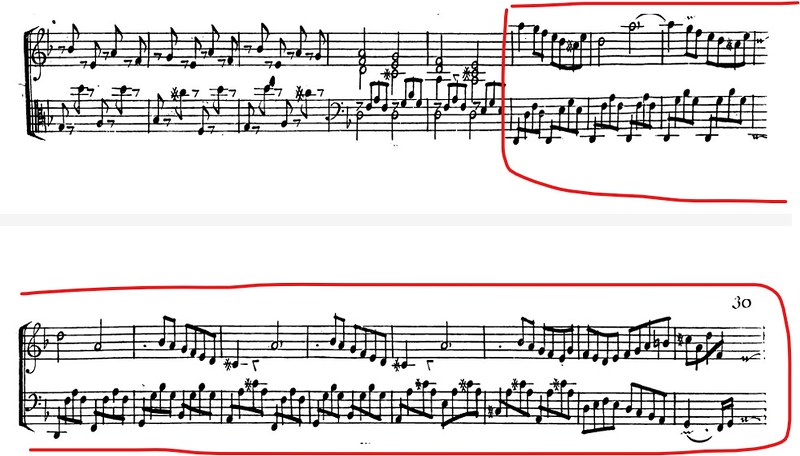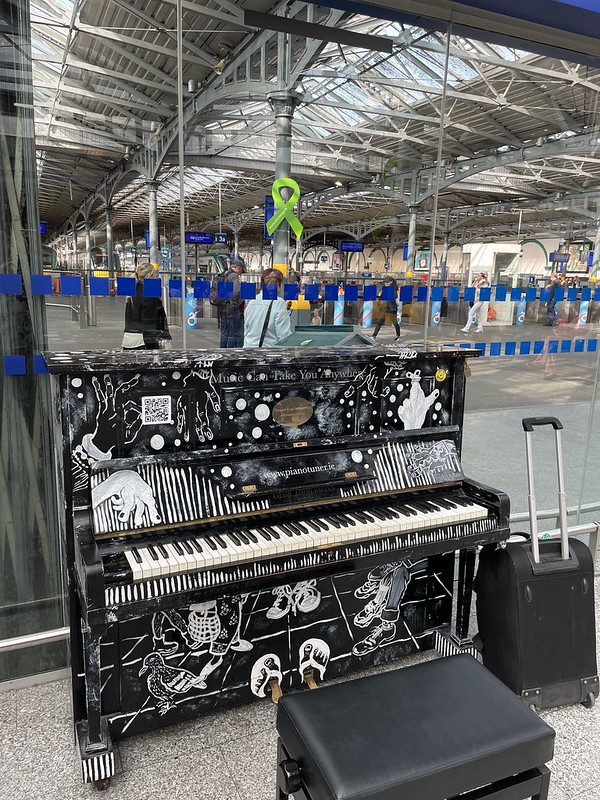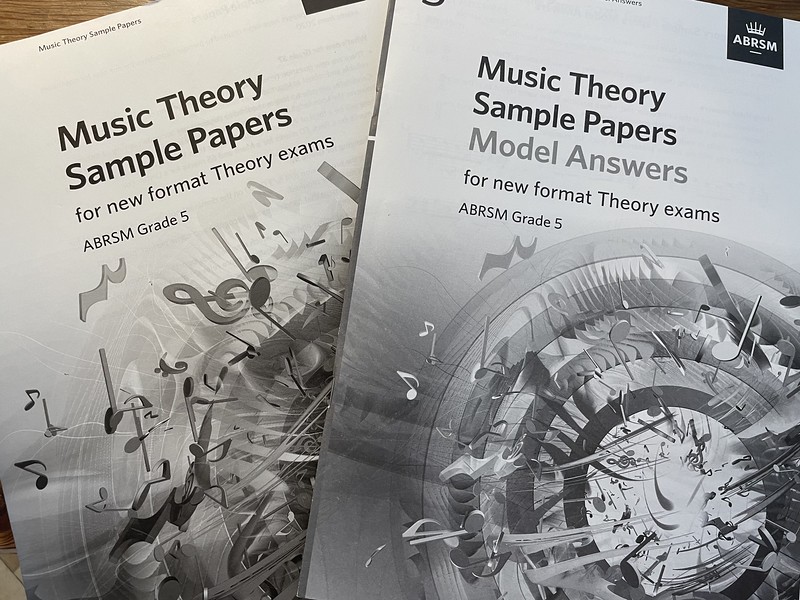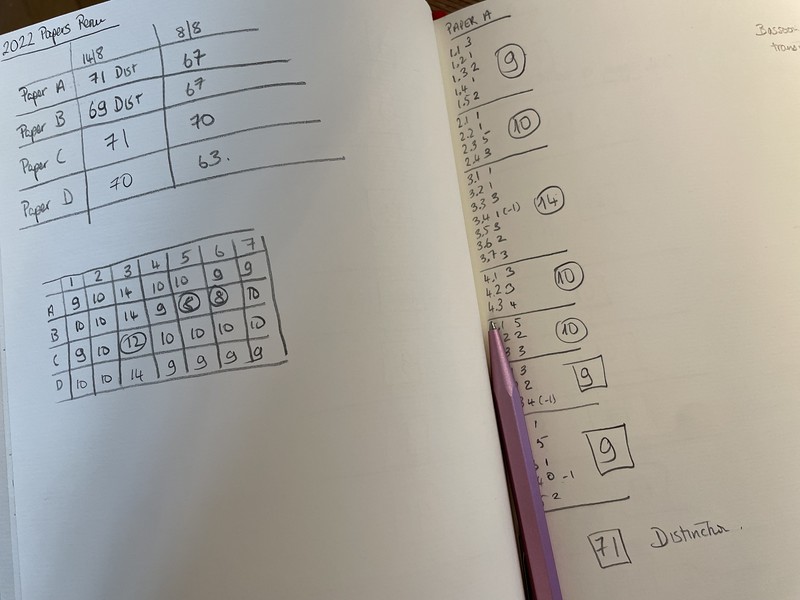“It is dreadful when something weighs on your mind, not to have a soul to unburden yourself to. You know what I mean. I tell my piano the things I used to tell you.”
Apparently this is from Frederic Chopin. When I was in my local sheet music shop last week buying Rameau (yes I got it), I found a book that is about his life and apparently his teaching. [this is why I bought it – I understand he was a good teacher]
I hope I find that quote in there.
Month: September 2023
Rameau: Les Cyclopes
While I still have a way to go to finish the Grade 6 pieces, I wanted to finalize a selection from List A for Grade 8. It’s not a period of music I instinctively ever want to learn and I wasn’t enthusiastic about more Bach to be honest. So I had a look at the list and attempted to find a good reason to learn the Scarlatti that was on the list. I failed.
I’ve chosen this:
There is a really great version by Grigory Sokolov around too and what fascinates me is how how different the various interpretations are. I suspect in part it’s because it was written in the early half of the 18th century, at a time when the composers did not necessarily leave much on the way of instruction, given they were written for harpsichord and this allows today’s musicians some latitude in how they play the pieces. But there are elements of this that I absolutely love.
You can find the sheet music here. I congratulate myself on finding a particularly antique version of it. I think it’s the first edition. Currently, it looks like the best publisher to get this from is Barenreiter – it’s not on Henle’s digital library and Barenreiter appear to have a couple of options to get it in print. I don’t think it’s on their digital library yet. In theory I am not in a hurry to get this. But I will still try to buy it tomorrow. I’m not sure I want 43E worth of Rameau, on the other hand I am supposed to be upping my sightreading game too. We will see what is supposed to be there.
Leif Ove Andsnes – Henri LeBoeuf Hall, Brussels
Just before I went on holiday, I was lucky enough to catch Leif Ove Andsnes playing Beethoven 5 in Brussels. It’s the second time I’ve heard that piece although previously it was with Daniel Barenboim as soloist.
Leif, I have always wanted to hear, playing the Nokia jingle if that was what it would take. I’ve missed concerts before for various reasons.
He was excellent. There is something quite delicate about how he plays, and he fades into the music. I enjoyed it very much. I’m sorry in one way to have been sitting behind him up high.
Beethoven 5 is one of my favourite concert pieces – up there with Saint Saens 5 and Rach 2 – and for a while it was a piece I did not think people could play disappointingly. Barenboim was somewhat disappointing the night I heard him play. It made me think that that concerto in particular is maybe a younger man’s game. Andsnes is one of those younger men and he made it count.
Public Pianos – Heuston Station
I haven’t passed through Heuston so much lately so I did not realise the piano had been replaced. The new piano is still an old piano, but in some ways, it is an interesting piano. I’m not sure how old it is, but it’s a Zimmerman upright piano.
If I have a few minutes, and the piano is free, I tend to sit down and play it, by way of encouraging the appearance of pianos. So here we go. I had a few minutes
I wasn’t very inspired but this is one of the ones I tend to play if I want to check out the piano. To be fair, the piano is reasonably in tune (well done John Murphy), The right pedal seems a bit locked which is a pity.
You can still buy brand new Zimmermann pianos – the brand is owned by C. Bechstein – and for a while there definitely was a dealer somewhere in Dublin. They are nice pianos in my experience.
ABRSM – Grade 5 Theory
Some time ago I looked into the lists for music exams with a view to eventually finishing off the grades. I had done a few few grades when I was a teenager (you can find the books here). I wasn’t in a hurry to go back to the RIAM (I’m never going to get over the Bartok, it seems) but I eventually after some research wound up on the ABRSM website. A couple of things cropped up around this: they had performance grades now (4 pieces instead of 3 and no sight/aural testing, plus they could be recorded and uploaded rather than scheduled).
Additionally, the grade 6 list had one piece that I already owned with a view to learning. However, there is some gamification involved and before you can do Grade 6, you need to do some grade 5 or other. ABRSM focused heavily on Grade 5 Theory although they acknowledged any other Grade 5 (including RIAM as it happens), I have very vague recollections of doing Grade 5 with the RIAM and it being problematic. But I could be discussing Grade 4, I don’t know.
Anyway, I had a look through the ABRSM online exam papers, did all of them and realised I was just shy of Grade 4 so some work was going to be required for Grade 5. Some study. Here’s what I did.
I bought all the material. Right now, that means a bunch of music theory papers, a book and some workbooks. In order of usefulness:
- First Steps in Music Theory
- Sample Exam papers
- A long way back: the workbooks.
If I am honest, the workbooks are not so useful if you are an adult. But the First Steps in Music Theory by Eric Taylor is absolutely essential.
This is a really useful book.
One of the most useful things you can do then is to work through exam papers.
The papers are organised in 7 sections:
- Rhythm
- Pitch
- Keys and Scales
- Intervals
- Chords
- Terms
- Music in Context
Each section has 10 points except keys and scales which has 15.
I worked through a lot of exam papers: there are several books of them, with a new one issued most of the recent years, there is a test digital exam on the ABRSM’s website and they also have one sample to download and print.
What I did at the time, was work through a paper, and then note the scores I had to identify which parts were my weaker parts, what I had to learn/work on with more effort.
You can see on one of the tables on the left hand side where I was dropping points on each paper. In theory, I just had to pass the exam so I can move on. But this is an ego thing for me – I didn’t just want to pass, I wanted to get a Distinction. So yeah, I needed to ensure I did not drop any more than 10 points. I did, several times, while going through the papers.
For me, the weaker points were generally, somehow, keys and scales, and intervals. I don’t know why because by ear, they work automatically for me.
In the end, I did the exam in August, and I got the distinction I want. If I was to give advice for anyone else doing this, buy the sample papers + model answers, and buy the First Steps in Music Theory book. And then, work through them. When you’re ready, sign up to to the exam and do it sooner rather than later.
Music of my childhood
I was looking for a piece of music I learned to play when I was about 11 or 12 and I knew some of the exam books I used at the time were still at home. I even knew when where they were. The piece of music was a Sonatina and some research around exam organisations didn’t turn up anything when I searched IMSLP. So the piece was in the grade 2 book. It was a Sonatina in G by Thomas Attwood. You can find the music here (youtube sorry). I’m also interested in a Sonatine piece that was on the Grade III book.
Here’s what was in those books
- Sonatina in G – Attwood
- A Little Song – Kabelevsky
- Mazurka – Berkovich
- Sonatine (2nd movement) Haslinger
- Dolly’s Complaint – Franck
- Serenade Andalouse – Poot
- Sonatine (2nd movement) – Pleyel
- Pentatonic Tune – Bartók
- First Loss = Schumann
- Sonatina – Hook
- A Little Song – Khachaturian
- Gay Story – Shostakovich
- Sonatine – Dussek
- Bagatelle – Beethoven (A flat)
- Knight Errant – Furze
- Sonata in C – Mozart
- Novelette – Khabalevsky
- Tuesday’s Child – Bennett
Looking at the list, what strikes me is that Khabalevsky turned up a couple of times.
I’m reasonably sure that I did Grade 5 as well but the book was nowhere to be found, I don’t remember what colour the cover was but I am reasonably sure that Fur Elise was on the list. If anyone from the RIAM from nearly 40 years is still knocking around, I’d be interested to know.
Blind Mary on SoundCloud
I have a SoundCloud account which I am experimenting with. The first recording is here.







